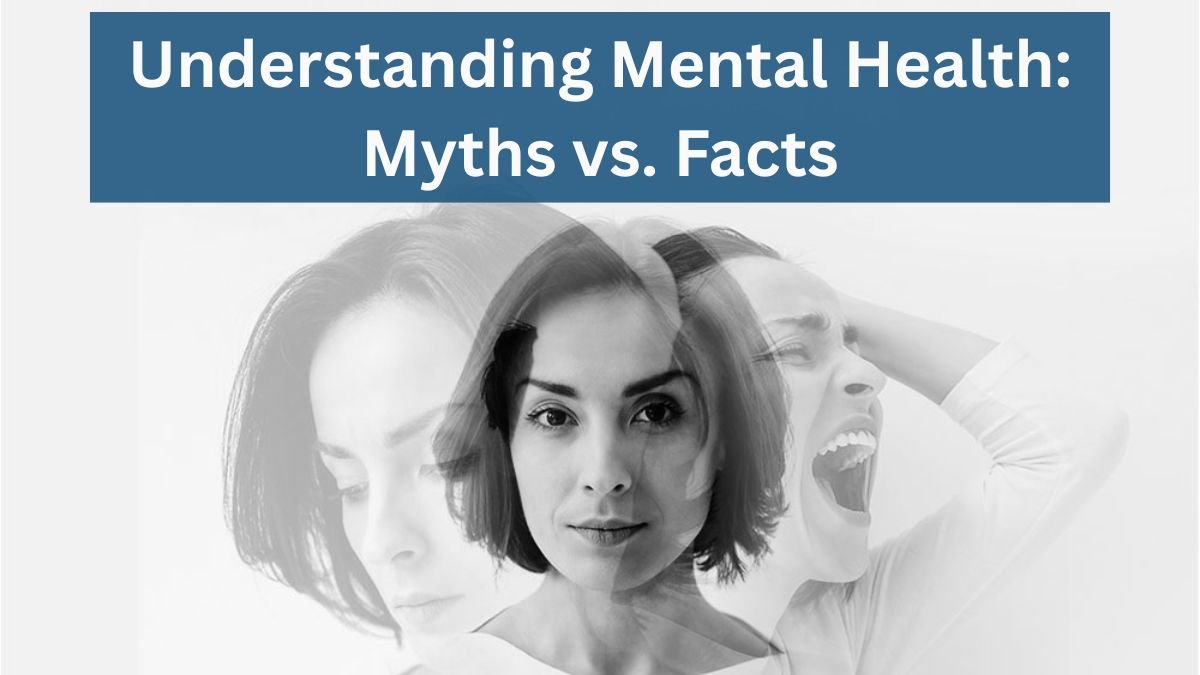Everyone undergoes some kind of mental tension, anxiety or depression in our busy life. However, in the case of mental health, the number of confusions, myths, and misunderstandings existing in the society remains high. Some people take it as a sign of weakness and some even laugh at it. In such a situation, understanding “mental health” correctly and breaking the misconceptions related to it is the need of the hour.
This article specifically highlights the myths and truths that affect the perceptions made about mental health in our society.
What is mental health?
Mental health is more than meaning “madness”. It is our thoughts, emotions and actions. Good mental health does not only influence our daily choices, but also defines our relations, functioning, and quality of life.
Mental health is equal to physical health. Similarly, there are also physical diseases with solutions; there are mental problems which can be treated.
Psych delusions and the facts behind them
Myth 1: Madness is a mental illness.
Fact:
This is the most common and dangerous myth. Not everyone with mental illness is “mad”. There are many mental illnesses like depression, anxiety, bipolar disorder, etc. that can happen to any normal person. Not all people with mental illness have lost their senses of social behavior.
Mental illnesses are only found among weak people.
Fact:
It is a fact that anyone can get mentally ill; regardless of how strong they are. There are hormonal disturbances, family predisposition, challenges and pressures in life that cause mental illnesses. To refer to an insane person as weak is utter nonsense and it will make people shun seeking therapeutic help.
Myth 3: Individuals that smile cannot be ill mentally.
Truth:
Some of these people that appear most smiling and happy are very much broken in their inside. The one thing that is apparent with depression is that it is an inward thing. There is such issue as high-wired depressed- we are able to attend to work, to run our households, but we are actually very depressed inside with emptiness and despair.
Myth 4: Only nuts would go to therapy and counseling.
Truth:
Therapy is a psychological treatment, where the practitioners solve the problem of making you comprehend your thoughts and emotions. It is highly effective in self conceptualization, managing stress and self improvement, achieving insight into the dynamics of relationships and decision making process. It is helpful not only to the seriously diseased, but to any person of para mental level.
Myth 5: Mental conditions are not curable.
Truth:
Most mental diseases are recoverable and individuals can get healed and continue leading an ordinary life. Treatment, medication and a support system are quite useful in the management of these diseases. A great number of individuals lead improved life after treatment compared to their previous lives.
Myth 6: When someone commits suicide he/she definitely wants to die.
Truth:
Most of the time those who think about committing suicide do not want to die, they want to find some relief to their sorrow, distress and agonies. Such people often give signals, which, if identified on time, can help them.
Myth 7: Children and adolescents do not suffer from mental illnesses.
Truth:
Even children nowadays have a lot of pressure at the mental level – pressure of studies, social media, family pressure etc. Mental disorders are also found in children, such as depression, anxiety, ADHD. It is thus necessary to take note of children mental health.
Mental health among the social attitudes
Even in a country such as India, the topic of mental health is a taboo. When someone says they feel depressed or anxious, they are often brushed off – “you think too much”, “it doesn’t matter”, “forget it, be happy”.
This attitude is very dangerous because it is this ignorance that prevents many people from seeking treatment in time, and the situation becomes serious.
How to support mental health?
- Hear and know:
Just in case somebody wants to share their mental health with you be sure to listen to whatever he or she is saying to you and do not judge them. Convey to them the feeling that you are interested in helping them. - Sympathise, but without pity:
A mentally ill individual requires respect and understanding and not pity. Affirm what they feel. - Promote professional assistance to them:
In case you feel that a person requires assistance, insist on reaching a psychiatrist or councillor. - Learn mental health:
Discuss mental health in your home, school, college and office, spread awareness and break myths.
Some important facts related to mental health
- 1 in every 7 people in India is suffering from some mental problem.
- According to WHO, depression can become the biggest disease in the world by 2025.
- A good sleep, balanced diet, exercise and social connections are very beneficial for mental health.
Conclusion:
Mental health is nothing to be ashamed of. It is an important part of every person’s life, just like the health of heart, lungs or brain. We need to break the myths related to it and adopt the truth. If we understand each other’s feelings, empathy
